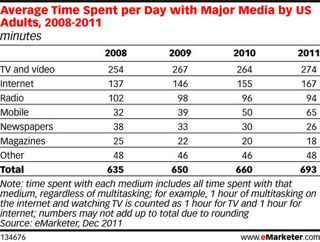This is certainly the era of the tablet
I’ve been going on here for a while about tablets and their likely impact on how we access and consume content which we currently (or previously) accessed via print. My visit to the CES trade show in Las Vegas this week has certainly reinforced my belief that tablets and the decides which follow will forever change how we access content.
Based on the latest devices released and complimentary announcements here in the US by service providers, publishers and telecommunications networks, these tablets will not only be our games devices, books, newspapers and magazines, they will also be our TVs, workstations, diaries, phones, home controllers and plenty more.
While there are a few ways newsagents can make money around the tablet phenomenon, they are not traffic generating. Our focus needs to be on new ways of generating traffic.
Our channel was created by publishers and for more than 100 years publishers have more or less controlled our businesses or at least key parts of it. As tablets become more widely used, the need for our channel will become less. This is why we need to be aware of what its happening here in the US and take the opportunity of time which is on our side for the same impact to be felt in Australia. It’s one reason why coming to the CES show is so valuable.
I’ll have a bit more to say about this when I get back, maybe at the national Tower newsagent user meetings which start next month. I think there are opportunities for newsagents today, good opportunities. However, to those who dismissed tablets here when I have written about them, they are here to stay, their use will grow across all demographics.


